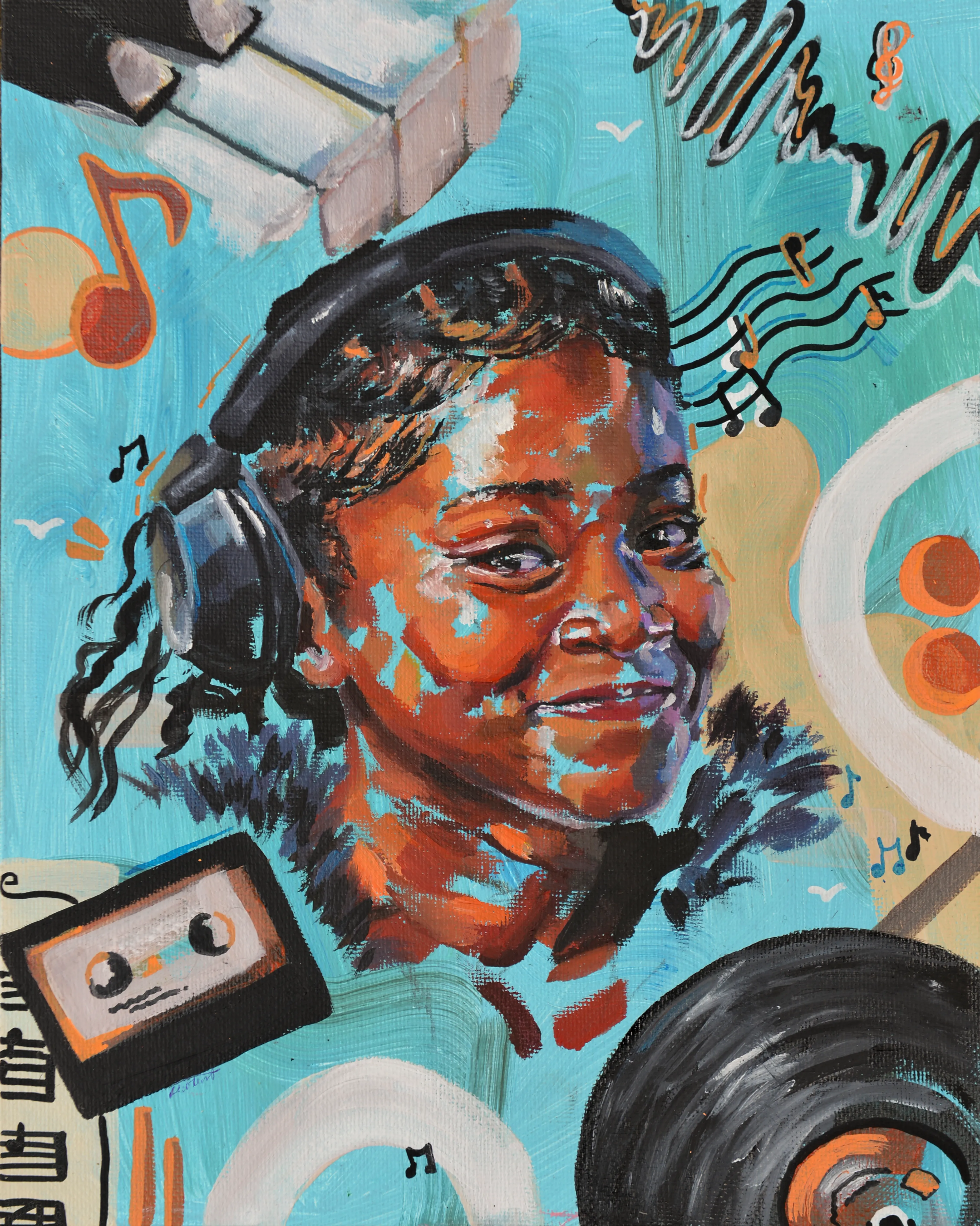
The Soundtrack of Your Life
Megan Murphy, S11, tunes into the transformational power of music.
Megan Murphy
Senior 11
Artwork by Miya Hunt
LVI
We’ve all had those mornings: it’s Monday, the alarm blares, and for a second, you wonder if you should just throw in the towel for the week – already. But, then you remember the only cure. Music. It’s the universal remedy for everything, from temper tantrums to break-ups - and in today’s era, it’s just a click away.
Now you may be wondering,
How does music have anything to do with freedom?
Well, think about it: everyone has that one playlist that’s full of their own song choices. That’s what a playlist is: an unique set of songs all chosen by you. And that’s what makes music so powerful—it’s deeply personal. Whether it’s Mozart or SZA, the possibilities are endless. Even if you think your taste is ‘basic,’ or just created by viral TikTok audios, every song has its own unique meaning to you.
Music is unlike anything else. Take the first song ever recorded (in 1860), Au Clair de la Lune. I’ll admit, it’s not exactly a banger, but it still managed to make us feel something. Music’s rhythms and tones can tap into our emotions in a way no other medium can. From Taylor Swift’s upbeat songs to the ones that make you just want to crawl into bed and cry, music has the amazing capacity to help us express our own emotions. In fact, a Spotify survey found that 62% of global listeners say music helps them express their emotions in ways words simply can’t. That’s especially true in genres like rap and hip-hop, which have become inspiring platforms for marginalised voices, acting as a powerful form of self-liberation.
Music also has this amazing ability to capture moments in people’s lives, almost like a time machine for emotions. Research from the University of Montreal shows that music activates brain areas tied to memory and emotional regulation, turning the songs in your playlist into emotional snapshots of your life. Whether it’s a memory from childhood or the first song you really loved, music has a way of unlocking vivid emotions and memories. Your playlist isn’t just a bunch of songs, it’s the soundtrack of your life and experiences.
Now you don’t have to be a music prodigy to appreciate its power. All you need is an app on your phone. For a prime example of someone using music to change the world look no further than Bob Dylan. If you’ve seen the recent movie biography starring Timothée Chalamet, you’ll know all about how Dylan used his music to speak out against social injustice and political oppression. Songs like Blowin’ in the Wind and The Times They Are A-Changin’ became anthems for the civil rights movement of the 1960s. Dylan’s music wasn’t just entertainment, it was a call for change, offering hope and solidarity to those who needed it most – creating musical masterpieces in the process.
Music can also be used as an amazing form of therapy. Ever notice how a single song can completely change your mood? One minute, you’re sulking over a bad test result, and the next, you’re dancing around your room. In a tough spot after a break-up? Adele’s got your back. And this isn’t just you, it’s science. According to the American Psychological Association, music can lower cortisol (the stress hormone), reducing anxiety and improving overall mental well-being. It’s more than just a distraction, it’s actually good for you.
The best thing about it is that music doesn’t judge. Whether you’re an aspiring violinist or completely tone-deaf, it’s there for you in every mood and every moment. So, next time your Monday morning alarm blares, remember: your playlist might just be your ticket to freedom.